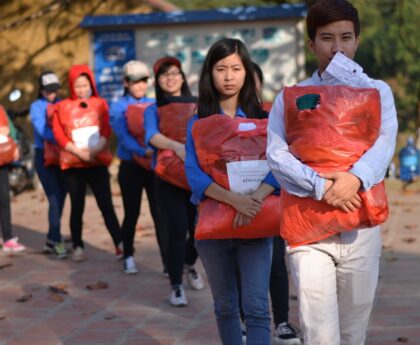When we send volunteers abroad, we usually get positive feedback: the guys get to practice their languages, try out new roles, learn new things, make connections all over the world, and generally take their lives to the next level. But it doesn’t always happen that way.
The project was interesting and eventful, but not without flaws. From positive: it was possible to improve German, to see Germany, to visit other European countries. We should separately note the host organization – they do very well, but not without criticism. Of the negative: bad joint activities, terrible relations between volunteers, prejudice and inattention of the organizers and workers.
It was difficult to do something in the workplace, as well as to create my own “mini-project. No one could explain the idea or give me examples of such projects, so it was unclear how and what to do. Everything was further complicated by the children’s unwillingness to do anything besides play.
Volunteers have no idea of their rights, they forget that they are citizens of their country, not Germany, and they do not learn either their resident rights and responsibilities or those of Germany. Household problems cause great difficulties, because volunteers are not adults, but grown-ups, and it is not easy for them to agree with each other. Volunteers also find it difficult in the workplace, because often the goals of the volunteer and the workers are different – the volunteer wants to be active himself and make everyone around him active, while the workers want to do their work quietly. The workers’ desire for calm has a positive side: if the volunteer does not want to do anything, no one will force him or her. It is also necessary to remember that in addition to the workplace there are many opportunities for personal self-development, because every volunteer has a lot of free time for online courses, books, creativity, blogs.
I can recommend this place and organization to those who are interested in social work with children and adolescents, who do not have high demands on the workplace and living conditions. Teachers and educators can find a lot of interesting things to do. There are no teaching jobs available.
Without the German language at all makes little sense to consider these options – such a person will be uncomfortable to communicate. Germans are closed people and if a person does not know German – at best they simply will not communicate. English is enough to communicate with other volunteers, but not all Germans know English.
In conclusion, I will say that my project came out to me useful – during this time I took several online courses, started to learn Spanish, tightened my German and English, went to the gym almost daily, traveled, implemented many small ideas for the workplace – daily tasks for children, tournaments, quest room, workshops on papier-mache and many other things. My relationship with the other volunteers was cold and sometimes hostile, the reasons are many, but the main ones: different mentalities, mutual inattention and intolerance. I would not want to repeat this project, but it was worth a try.
Volunteering abroad is always getting out of your comfort zone. An alien environment where everything is unfamiliar – from everyday life to the workplace. You have to be prepared for many things.
- First, you enter an established non-profit organization where the employees have their own work tasks, and no one is going to take care of you on purpose. A volunteer position is about being proactive. You offer ideas, you are interested, you ask, you offer help. The employees only guide, support and suggest.
- Secondly, it is very important to choose an area of activity that is interesting to you. Working with children, restoration of buildings, promotion of ecological campaigns are different things, if you are not burning with the subject of your chosen project, it will be hard to “boil” in it and realize your own initiatives for a year.
- Thirdly, all the volunteer programs are built in such a way that volunteers from different countries take part in the project. It does not happen that they invite three volunteers from one country. The purpose of the programs is to promote ideas of cooperation and dialogue between people of different cultures and countries. That is why it is important to be flexible and learn to build relationships with everyone who surrounds you on the project. Of course, the difference of mentalities and habits, the language barrier make it difficult. But that’s the point of international volunteering, that’s the fun of it!
Volunteering abroad is a challenge to yourself, but if you manage to overcome all the difficulties – you will get immeasurably more invested effort.




